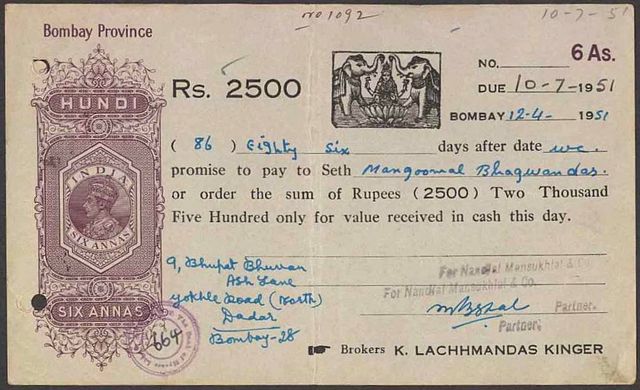A hundi or hundee is a financial instrument that was developed in Medieval India for use in trade and credit transactions. Hundis are used as a form of remittance instrument to transfer money from place to place, as a form of credit instrument or IOU to borrow money and as a bill of exchange in trade transactions. The Reserve Bank of India describes the hundi as "an unconditional order in writing made by a person directing another to pay a certain sum of money to a person named in the order."
A hundi for Rs 2500 of 1951, stamped in the Bombay Province with a pre-printed revenue stamp.
Government issued hundis included a watermark to prevent forgery.
A negotiable instrument is a document guaranteeing the payment of a specific amount of money, either on demand, or at a set time, whose payer is usually named on the document. More specifically, it is a document contemplated by or consisting of a contract, which promises the payment of money without condition, which may be paid either on demand or at a future date. The term has different meanings depending on its use in the application of different laws and depending on countries and contexts. The word "negotiable" refers to transferable and "instrument" refers to a document giving legal effect by the virtue of the law.
A 1939 promissory note, Rangoon, Burma.
An 1870 bill of exchange payable in London with British Foreign Bill revenue stamps attached.
Belgian bill of exchange, 1933





